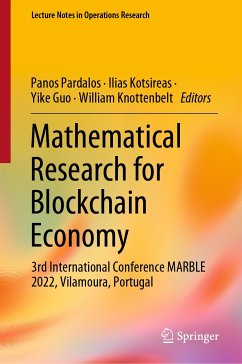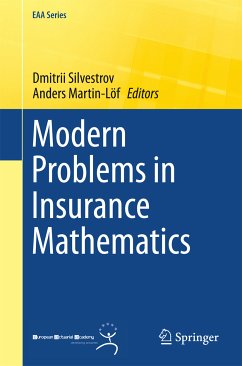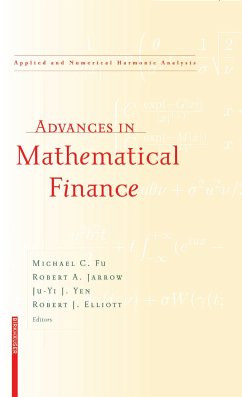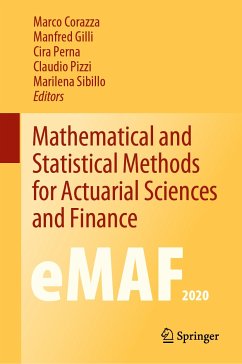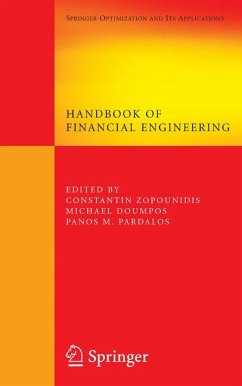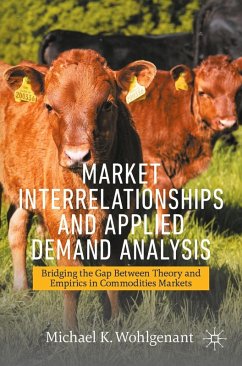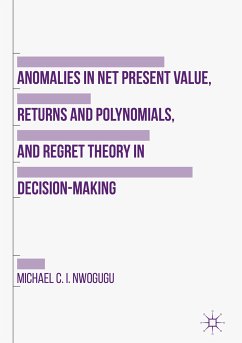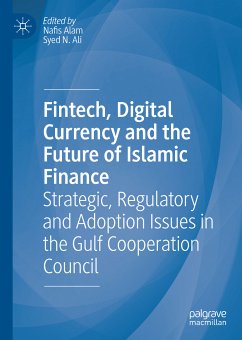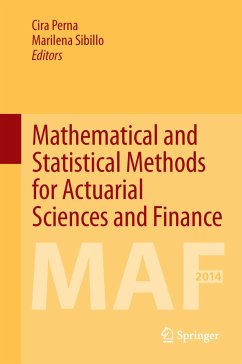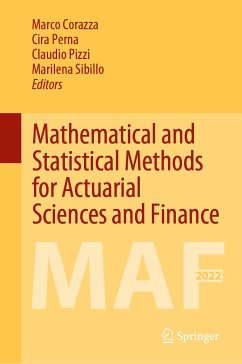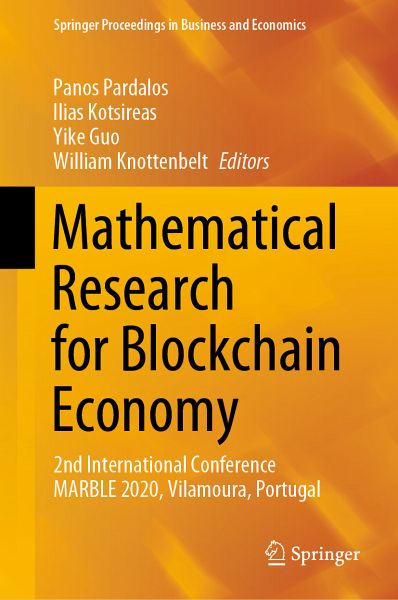
Mathematical Research for Blockchain Economy (eBook, PDF)
2nd International Conference MARBLE 2020, Vilamoura, Portugal
Redaktion: Pardalos, Panos; Knottenbelt, William; Guo, Yike; Kotsireas, Ilias
Versandkostenfrei!
Sofort per Download lieferbar
112,95 €
inkl. MwSt.
Weitere Ausgaben:

PAYBACK Punkte
56 °P sammeln!
This book presents the best papers from the 2nd International Conference on Mathematical Research for Blockchain Economy (MARBLE) 2020, held in Vilamoura, Portugal. While most blockchain conferences and forums are dedicated to business applications, product development or Initial Coin Offering (ICO) launches, this conference focused on the mathematics behind blockchain to bridge the gap between practice and theory. Blockchain Technology has been considered as the most fundamental and revolutionising invention since the Internet. Every year, thousands of blockchain projects are launched and cir...
This book presents the best papers from the 2nd International Conference on Mathematical Research for Blockchain Economy (MARBLE) 2020, held in Vilamoura, Portugal. While most blockchain conferences and forums are dedicated to business applications, product development or Initial Coin Offering (ICO) launches, this conference focused on the mathematics behind blockchain to bridge the gap between practice and theory.
Blockchain Technology has been considered as the most fundamental and revolutionising invention since the Internet. Every year, thousands of blockchain projects are launched and circulated in the market, and there is a tremendous wealth of blockchain applications, from finance to healthcare, education, media, logistics and more. However, due to theoretical and technical barriers, most of these applications are impractical for use in a real-world business context. The papers in this book reveal the challenges and limitations, such as scalability, latency, privacy andsecurity, and showcase solutions and developments to overcome them.
Blockchain Technology has been considered as the most fundamental and revolutionising invention since the Internet. Every year, thousands of blockchain projects are launched and circulated in the market, and there is a tremendous wealth of blockchain applications, from finance to healthcare, education, media, logistics and more. However, due to theoretical and technical barriers, most of these applications are impractical for use in a real-world business context. The papers in this book reveal the challenges and limitations, such as scalability, latency, privacy andsecurity, and showcase solutions and developments to overcome them.
Dieser Download kann aus rechtlichen Gründen nur mit Rechnungsadresse in A, B, BG, CY, CZ, D, DK, EW, E, FIN, F, GR, HR, H, IRL, I, LT, L, LR, M, NL, PL, P, R, S, SLO, SK ausgeliefert werden.



